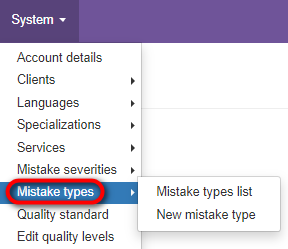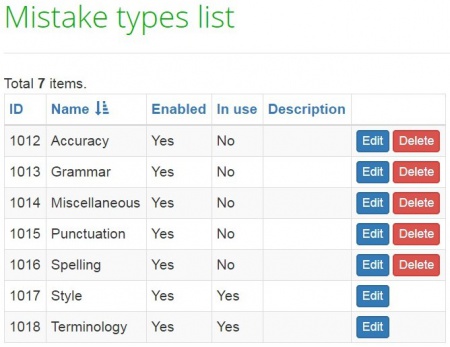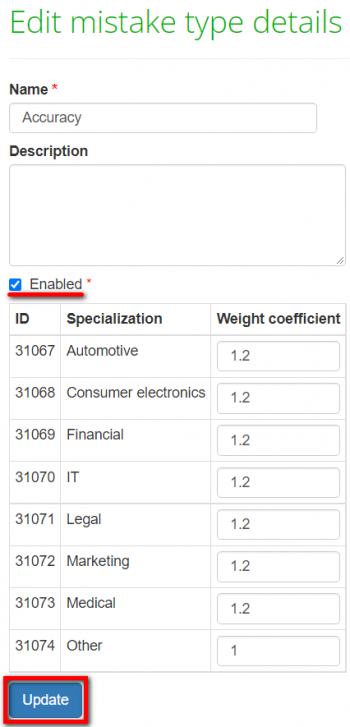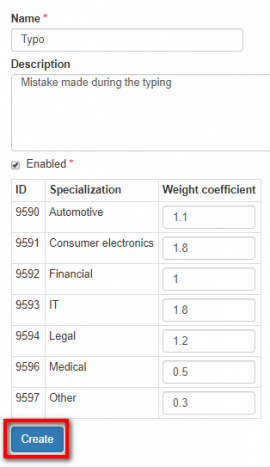Mistake types
Mistake types list page: cloud.tqauditor.com/mistake-type/index
New mistake type page: cloud.tqauditor.com/mistake-type/create
General information
To view the Mistake types list, go to System → Mistake types → Mistake types list:
- [new version] You can classify mistakes by types. Also, there are reports by mistake types, and translators can get a better understanding of how they can improve their translation quality.
Go to "System" -> "Mistake types". Here you can view the list of services or add new ones:
Mistake types list
Mistake type is kind of mistake. For example, Grammar, Punctuation, etc. The system proposes you default mistake types:
- [new version] You can edit or delete default mistake types by clicking the corresponding buttons:
To sort the mistake types by the needed criteria, please click any column name highlighted in blue. When the mistake types are sorted, you will see the arrow ![]() button next to the corresponding column name:
button next to the corresponding column name:
Note: As usual, it is impossible to delete some mistake types (because they are connected with projects), but you may uncheck the "Enabled" box, and the mistake type will not appear in the drop-down list anymore.
- [new version] Note: You cannot delete mistake types in use, but you can disable them so that they are not displayed in the drop-down lists. Press "Edit", uncheck the "Enabled" checkbox, and press "Update":
New mistake type
Go to System → Mistake types → New mistake type:
To add a new mistake type, fill in the name, description if needed, define score weight coefficients per specialization, and press "Create":
On this page, you may add a new mistake type:
- Enabled - mistake appears in the drop-down lists, so you may choose it.
- [new version] *"Enabled" - if this checkbox is marked, the specialization is displayed in the drop-down list when adding a mistake.
- "ID" - a unique number, generated by the system.
- "Specialization" - the type of specialization.
- [new version] *"Specialization" - go to "System" -> "Specializations" to edit or add specializations.
- Weight coefficient - the importance of mistake expressed by an index (index < 1 means that mistake is insignificant, index > 1 means that mistake is significant and may arise serious consequences).
- [new version] *"Weight coefficient" - a value that shows how much a mistake affects the project quality score depending on the specialization of a translation and the mistake type. For example, a stylistic mistake made in a legal translation is more considerable than the same mistake in an IT translation.



